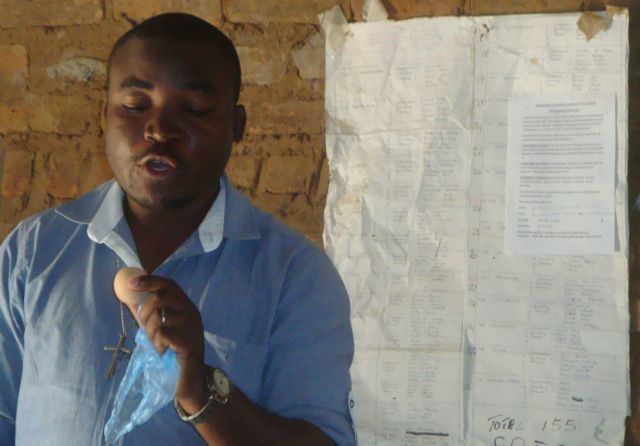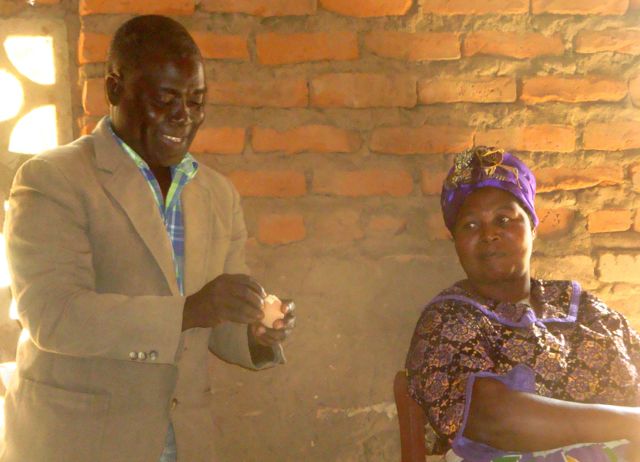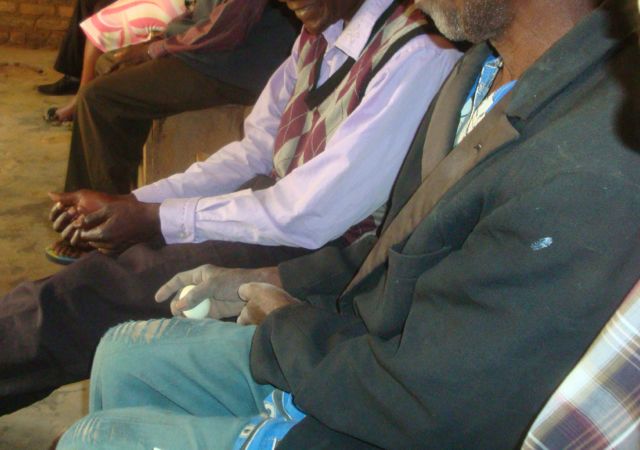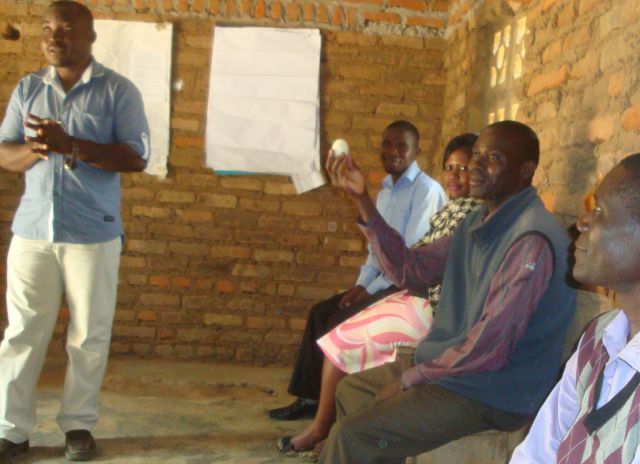There is considerable evidence 1 that improved WASH (Water, Sanitation & Hygene) services correlate to improved health. Clean water is one component, the others are sanitation systems and hygiene practice. Whilst donors are attracted to providing assistance because of the direct linkages between outputs and desirable outcomes (+ve change in the broader system), a significant issue is sustainability. For unfortunately, providing nice new latrines and clean water is no guarantee that they are used or maintained. As is increasingly becoming understood, sustainability is a function of ‘ownership’ in decisions made. On a recent visit to a village about 2.5hrs from the nearest sealed road I witnessed the ‘triggering’ component of the Community Lead Total Sanitation (CLTS) program.
The one I witnessed was not a normal village event, but second of two organised specifically for the Group Village Head men of about 30 target villages. This was to generate support for the process to be carried out in their communities. I had read about the CLTS process a few years back, and was excited to have the opportunity to experience it in real life. What really struck me was both the highly professional manner in which the team (Tigwirizane, Fiona and Michael) conducted the session, and also just how theatrical an event it was. I particularly noticed how the team had changed the order of the sessions (hygiene first, followed by latrine building) to respond to the timing of the event, and also how Tigwirizane first warned up the crowd by asking how they had become Village Headmen and what they thought their duties were with regard to village development. After the warm up, Michael from the Ministry of Health took over.
Michael started with a short, interactive talk (all in Chichewa, so I’m not sure of the content, maybe hygiene or nutrition), and then produced the egg:

Michael produces a hard boiled egg. I’m not exactly sure what he says about it, but possibly something about it’s nutritional value.

He asks the Group Village Headman at the end of the semi circle to peel the egg. The lady watching is the Traditional Authority (TA).

Experiencing the peeled egg as it is passed around the group.

The invitation. ‘Now who would like to eat this highly nutritious boiled egg? What, none of you, why not? What’s your problem?’
Perhaps not in the same league, but as a theatrical/experiential event I was reminded of our bush fire simulation back in Australia where the aim was to engage the community to think about complex issues with a view to promoting individual action. http://www.youtube.com/watch?v=IB2DF10pxwM
1) Esrey 1985,1991; Fewtrell 2005; Clasen et al. 2009,2010, Waddington 2009; Norman et al. 2010



